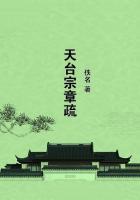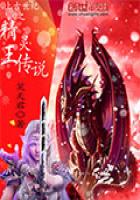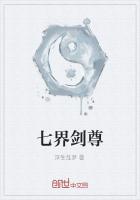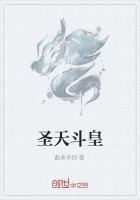And so on, and so forth -- for this is on}y a small superficially culled bouquet out of the Dühring rose garden. It must be understood that, at the moment, we are not in the least concerned whether these amiable expressions of abuse -- which, if he had any education, should forbid Herr Dühring from finding anything vile and snotty -- are also final and ultimate truths. And -- for the moment -- we will guard against voicing any doubt as to their deep-rootedness, as we might otherwise be prohibited even from trying to find the category of idiots to which we belong. We only thought it was our duty to give, on the one hand, an example of what Herr Dühring calls "the select language of the considerate and, in the real sense of the word, moderate mode of expression" {D. Ph. 260}, and on the other hand, to make it clear that to Herr Dühring the worthlessness of his predecessors is a no less established fact than his own infallibility.
Whereupon we sink to the ground in deepest reverence before the mightiest genius of all time -- if that is how things really stand.
Part I
PHILOSOPHY III.
CLASSIFICATION.
APRIORISM P hilosophy, according to Herr Dühring, is the development of the highest form of consciousness of the world and of life {D. Ph. 2},and in a wider sense embraces the principles of all knowledge and volition. Wherever a series of cognitions or stimuli or a group of forms of being come to be examined by human consciousness, the principles underlying these manifestations of necessity become an object of philosophy. These principles are the simple, or until now assumed to be simple, constituents of manifold knowledge and volition {8}.
Like the chemical composition of bodies, the general constitution of things can be reduced to basic forms and basic elements. These ultimate constituents or principles, once they have been discovered, are valid not only for what is immediately known and accessible, but also for the world which is unknown and inaccessible to us. Philosophical principles consequently provide the final supplement required by the sciences in order to become a uniform system by which nature and human life can be explained {9}. Apart from the fundamental forms of all existence, philosophy has only two specific subjects of investigation -- nature and the world of man {14}. Accordingly, our material arranges itself quite naturally into three groups, namely, the general scheme of the universe, the science of the principles of nature, and finally the science of mankind. This succession at the same time contains an inner logical sequence , for the formal principles which are valid for all being take precedence, and the realms of the objects to which they are to be applied then follow in the degree of their subordination {15}.
So far Herr Dühring, and almost entirely word for word.
What he is dealing with are therefore principles , formal tenets derived from thought and not from the external world, which are to be applied to nature and the realm of man, and to which therefore nature and man have to conform. But whence does thought obtain these principles?
From itself? No, for Herr Dühring himself says: the realm of pure thought is limited to logical schemata and mathematical forms {42} (the latter, moreover, as we shall see, is wrong). Logical schemata can only relate to forms of thought; but what we are dealing with here is solely forms of being , of the external world, and these forms can never be created and derived by thought out of itself, but only from the external world. But with this the whole relationship is inverted: the principles are not the starting-point of the investigation, but its final result;they are not applied to nature and human history, but abstracted from them, it is not nature and the realm of man which conform to these principles, but the principles are only valid in so far as they are in conformity with nature and history. That is the only materialist conception of the matter, and Herr Dühring's contrary conception is idealistic, makes things stand completely on their heads, and fashions the real world out of ideas, out of schemata, schemes or categories existing somewhere before the world, from eternity -- just like a Hegel .
In fact, let us compare Hegel's Encyclopaedia [30] and all its delirious fantasies with Herr Dühring's final and ultimate truths. With Herr Dühring we have in the first place general world schematism, which Hegel calls Logic. Then with both of them we have the application of these schemata or logical categories to nature: the philosophy of nature; and finally their application to the realm of man, which Hegel calls the philosophy of mind. The "inner logical sequence"of the Dühring succession therefore leads us "quite naturally" {D.
Ph. 15} back to Hegel's Encyclopaedia , from which it has been taken with a loyalty which would move that wandering Jew of the Hegelian school, Professor Michelet of Berlin, to tears. [31]
That is what comes of accepting "consciousness", "thought", quite naturalistically, as something given, something opposed from the outset to being, to nature. If that were so, it must seem extremely strange that consciousness and nature, thinking and being, the laws of thought and the laws of nature, should correspond so closely. But if the further question is raised what thought and consciousness really are and where they come from, it becomes apparent that they are products of the human brain and that man himself is a product of nature, which has developed in and along with its environment; hence it is self-evident that the products of the human brain, being in the last analysis also products of nature, do not contradict the rest of nature's interconnections but are in correspondence with them. [32]


![火[合牛]供养仪轨](https://cdn.shuoxu.com/images/book/2020/02/15/184910304.jpg)
